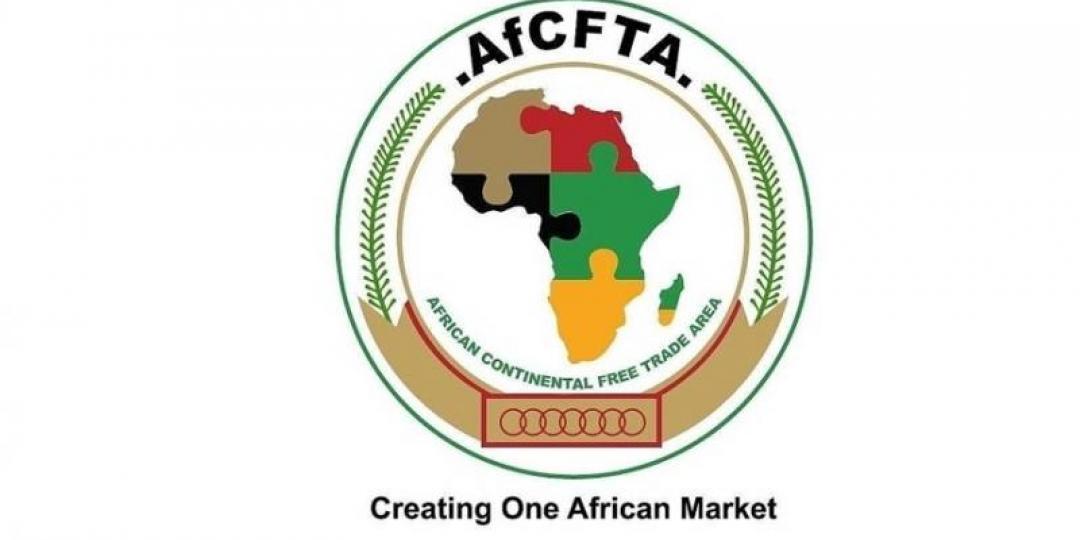International trade represents an estimated 59.2% of our country’s GDP, which is important insofar as the continued growth of our country’s economy is concerned.
At a time marred by economic uncertainty and rising youth unemployment, we can use this as an avenue to address these challenges.
In 2020, the estimated youth unemployment rate in South Africa was 55.75%; this figure has been increasing consistently and has risen by 11.14% over the last 12 years from 44.83% in 2016 (source: statista.com). Whilst we acknowledge challenges, it is important to apply practical solutions and leverage available resources to do so. The African Union recognises our continent’s youth as its biggest resource. This article discusses the immediate and short-term practical solutions towards enhancing available resources to reduce youth unemployment, thus reversing the trend.

In 2019, the African Union launched the operational phase of the African Continental Free Trade Area (AfCFTA), establishing a single market for goods and services across 55 countries - making it the world's largest free trade area by number of countries. The AfCFTA aims, inter alia, to expand intra-African trade and promote sustainable and inclusive economic development. Therein is our solution to addressing the challenge of rising youth unemployment. To derive maximum benefit from the AfCFTA, it is crucial to drive, influence and encourage youth to participate and pursue a career in international trade. To achieve this, we need to run workshops at pre-tertiary level and provide a detailed insight into the vast array of opportunities that exist and are available within this area.
Aligning with a previous column on empowering entrepreneurs, the development of SMEs in international trade dovetails with the inclusivity of youth participation. The twin problems of youth unemployment and SME competitiveness can and should be solved jointly. The AfCFTA provides opportunities for import and export promotion, and we need to make our youth aware of these opportunities in order to derive maximum benefit from the implementation thereof.
As per the extract, Chapter 8: Empowering youth for sustainable trade: “Youth feel empowered economically when they have well-paid, interesting jobs. This is more likely to happen when companies are competitive and hire young people. With SMEs accounting for most jobs in developing countries, they are well placed to hire local youth and provide on-the-job training and experience that can be a gateway to a career. But to grow and be able to hire in today’s globalised economy, small enterprises must boost their competitiveness and attractiveness to youth as a viable career option.”
Access to education and skills development must be the foundation of inclusive participation, once the practical workplace skills of our unemployed youth are developed appropriately and with unparalleled levels of quality in the respective associated discipline. If accompanied by a strong work-integrated and practical approach, it will bolster the attractiveness of the incumbent as a work-ready candidate, and this is the key differential in achieving success. The creation of simulated workspaces, with replicated and modified real workplace scenarios is therefore essential toward building a strong candidate.

According to the latest available data from the WTO, in 2019 South Africa exported US$ 90 billion worth of goods, whilst it imported US$ 107 billion. Our country imported services of the total value of US$ 15.3 billion whereas our exports of services in the same year reached the total value of US$ 14.4 billion. We (South Africa) recorded a trade surplus of US$ 1.7 billion in 2019. South Africa has been a WTO member since January 1, 1995 and a member of GATT since June 13, 1948.

Article 10 of the African Youth Charter treaty advocates for, inter alia, the development of youth through the dissemination of information that will be of economic, political, social, and cultural benefit to them - and as such, we as the citizens of South Africa, who are key role players in international trade, must align ourselves with this provision and promoting inclusive participation for our youth who are the future leaders of tomorrow. As per the United Nations, 19 of the world’s 20 youngest countries are in Africa, which paints a strong picture of our continent’s youthful population.

One must take cognisance of the many activities associated with international trade and the opportunities it presents. These activities include, but are not limited to, supply chain management, logistics, transport, customs brokerage, freight forwarding, consulting, finance, and training. Businesses must, therefore, capitalise on these opportunities to achieve inclusive youth participation. There is still a fair amount of ignorance amongst youth insofar as international trade activities are concerned and hence awareness promotion activities at a pre-tertiary level, such as workshops and webinars, are essential to guide youth toward pursuing a career in this field. It is therefore imperative to encourage youth participation by providing platforms for skills development, knowledge sharing, career workshopping and capacity building.
It is therefore imperative to invest in and empower our youth to address firstly the issue of youth unemployment and secondly ensure that the gap that exists between an industry veteran leaving the industry and a college graduate entering the industry is adequately addressed for the future benefit our industry. We need to try as far as we possibly can to encourage youth participation and entrepreneurship in international trade. As Franklin D Roosevelt aptly put it: “We cannot always build the future for our youth, but we can build our youth for the future”.











